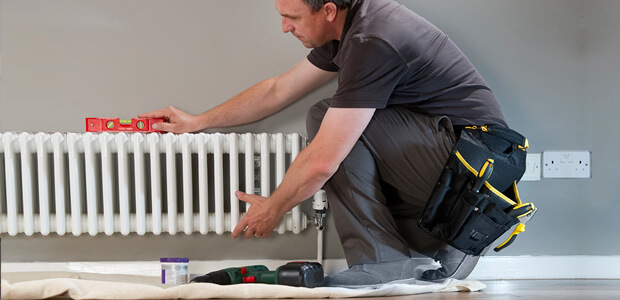No-one wants a botch job done on their home, but unless you’re lucky enough to know tradesmen you can count on, it isn’t always easy to know where to find someone reliable.
If you want to steer clear of the cowboys, here are some of the things you should check when hiring a plumber, electrician or building contractor.
1. Are they qualified?
Always check the qualifications of anyone you are considering hiring to work on your home. Many plumbers, electricians and other tradesmen belong to TrustMark - a not-for-profit government-licensed organisation. All members must operate to government-endorsed standards, which can provide valuable peace of mind that anyone you’re employing is fully qualified.
You can search for a tradesman by entering your postcode and what sort of tradesman you are looking for. Other sites are available which can help you find qualified tradesmen. You can find a registered electrician near you at www.electricalcompetentperson.co.uk or a qualified plumber at www.aphc.co.uk.
2. Can anyone local provide a reference?
Recommendation is usually the best way to find a reputable tradesman. Ask friends or family living nearby whether they know a plumber, electrician or builder they can recommend.
It’s often a good idea to ask tradesmen themselves if they can supply a reference of someone they’ve worked for who is happy to speak to you. If they say they can’t, this should ring warning bells.
3. Can you find them on any review websites?
Do an internet search for the tradesman you are thinking of hiring to see if anyone has posted reviews of them online. Many of them will have Facebook pages where you can read feedback from previous customers. Several trade referral websites post reviews online too.
For example, the site RatedPeople.com enables you to post your location and the job you want doing and then traders will offer quotes. You can see what other customers have said about them before you make your decision. Similarly, Trustatrader.com allows you to see feedback from previous customers, and you can also pay your trader online via the site.
4. Are their prices fair?
Always get at least three different quotes for the work you need done so you can be sure you aren’t being over-charged. There are also several labour costs websites where you can get a rough idea of how much the job should cost. These include www.quotationcheck.com, which bases its examples on real quotes from real companies in the UK.
5. Are they a member of a trade body?

Ask the tradesman you are considering hiring if they are a member of a trade body. This can be an advantage if you’re not happy with the work that’s done, as trade bodies will often look into complaints about their members. They may also offer dispute resolution services to help you reach agreement over how next to proceed.
For example, when looking a plumber or heating contractor, you might want to use a member of the Association of Plumbing & Heating Contractors (APHC), or if you’re looking for an electrician, you may want to choose someone who belongs to the Electrical Contractors’ Association which aims to increase safety and promote training for electricians.
Alternatively, the National Inspection Council for Electrical Installation Contracting (NICEIC) is the UK’s leading voluntary regulatory body for the electrical contracting industry. It has been assessing the electrical competence of electricians for almost 60 years and currently has a roll of over 26,000 registered contractors.
6. Have they provided a written quote?
It’s vital to get a written quote before any work begins, as this will protect you from any unexpected price hikes as the job progresses. The quote should clearly outline all the costs involved in the project, including both labour and materials. You should also request that it includes timings, so you know when the job will start and finish.
Remember to let your home insurance provider know if you plan to have building work carried out on your property, as you may need to increase your buildings and contents cover.




